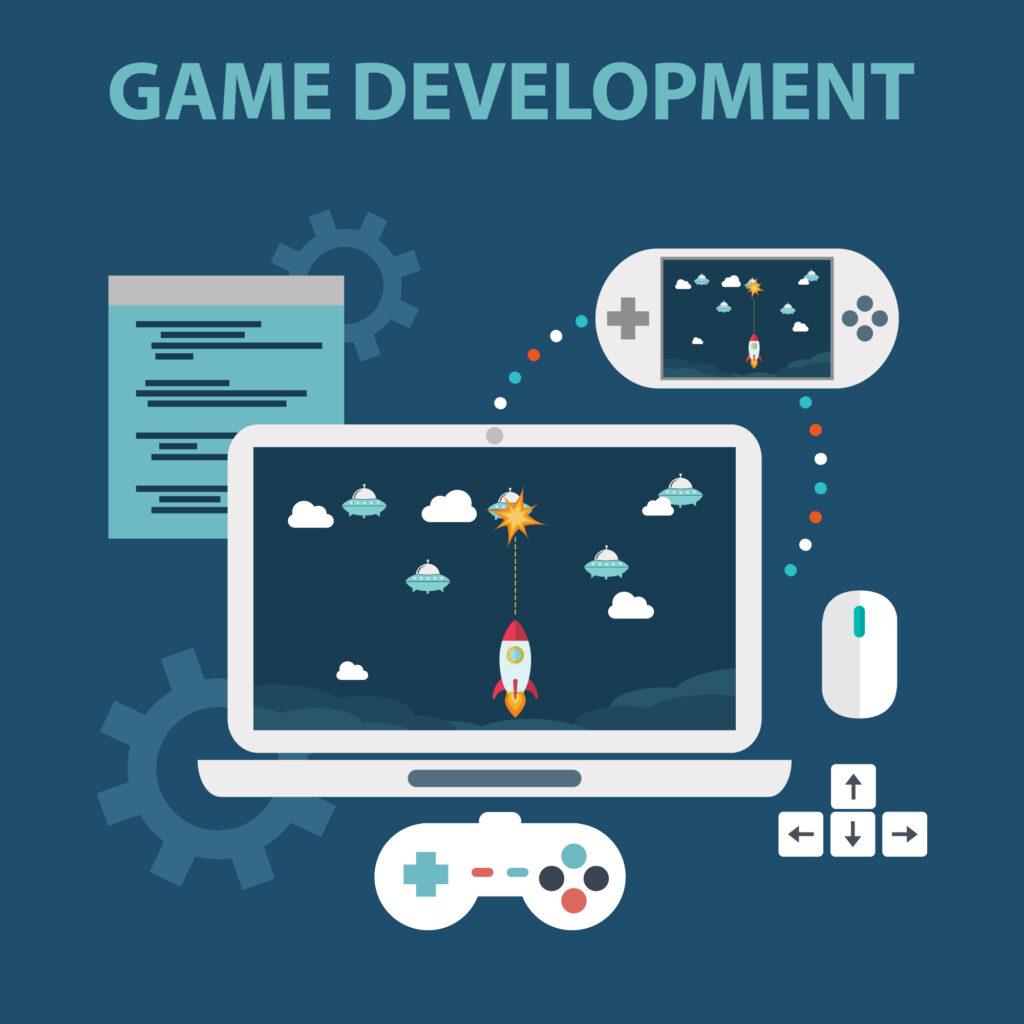The interesting and quickly expanding field of game creation blends storytelling, technology, and art. Anyone with a passion for video games may now enter the world of game production thanks to the proliferation of readily available tools and materials. This blog will give you the necessary advice and insights to launch your game development career, whether your goal is to make your own independent game or investigate a career in the field.
Define Your Vision
Begin by clarifying your goals and vision for your game. Ask yourself what type of game you want to create, the genre, gameplay mechanics, and the overall experience you wish to deliver. Having a clear vision will guide your decision-making process throughout development.
Choose the Right Game Engine
Selecting the right game engine is crucial, as it provides the foundation for building your game. Beginners often start with beginner-friendly engines such as Unity or Unreal Engine, which offer a wealth of documentation, tutorials, and active communities to assist you along the way.
Learn the Basics of Programming
While it’s not necessary to be a coding expert, having a basic understanding of programming concepts will greatly benefit your game development journey. Start with a beginner-friendly language like C# for Unity or Blueprints for Unreal Engine. Online tutorials, courses, and interactive coding platforms can help you grasp the fundamentals.
Begin with Simple Projects
Don’t aim to create the next AAA game right away. Start with small, achievable projects that allow you to practice and refine your skills. This incremental approach will build your confidence and knowledge base, setting you up for more complex projects in the future.
Embrace Online Learning Resources
The internet is a treasure trove of game development knowledge. Explore online tutorials, forums, YouTube channels, and communities dedicated to game development. Engage with fellow developers, ask questions, and learn from their experiences. Websites like Unity Learn, Unreal Engine’s official documentation, and free coding platforms like Codecademy can be invaluable resources.
Focus on One Aspect at a Time
Game development involves various disciplines, including programming, art, sound design, and game design. Instead of trying to master everything simultaneously, focus on one aspect at a time. This approach allows you to deepen your understanding and gradually develop your skills in specific areas.
Iterate and Seek Feedback
Regularly test and iterate on your game to refine its mechanics and overall experience. Seek feedback from friends, fellow developers, or even online communities. Embrace constructive criticism and use it as a catalyst for improvement. Remember that feedback is crucial for honing your skills and creating a more enjoyable game.
Publish and Share Your Game
Once you have a playable and polished game, consider publishing it on platforms such as Steam, itch.io, or mobile app stores. Sharing your creation with the world not only provides a sense of accomplishment but also valuable feedback from players.
Join Game Development Communities
Connect with other game developers by joining online communities, forums, and social media groups dedicated to game development. Engaging with like-minded individuals will provide you with a network of support, inspiration, and opportunities for collaboration. You can learn from experienced developers, share your progress, and gain valuable insights into the industry.
Embrace Game Design Principles
While programming and technical skills are essential, understanding game design principles is equally important. Study the fundamentals of game design, including player engagement, level design, pacing, and balancing. By incorporating these principles into your projects, you can create games that are not only technically sound but also engaging and enjoyable to play.
Experiment and Innovate
Game development is a creative field that thrives on innovation and experimentation. Don’t be afraid to take risks and try new ideas in your projects. Push the boundaries of traditional game mechanics, explore unique art styles, or experiment with narrative structures. Embracing creativity and originality will set your games apart and make them memorable.
Collaborate with Others
Consider collaborating with other developers, artists, musicians, or writers on your game projects. Collaboration not only brings fresh perspectives and expertise but also provides valuable learning opportunities. Working as part of a team can simulate the real-world game development process and help you develop important collaboration and communication skills.
Polish Your Game
Polishing your game is an essential step in creating a professional and immersive experience. Pay attention to details such as user interface design, audio effects, animations, and bug fixing. The extra effort you put into polishing your game will greatly enhance its overall quality and player satisfaction.
Learn from Game Analytics
Once your game is published, leverage analytics tools to gather data on player behavior and engagement. Analyzing this data will help you understand how players interact with your game, identify areas for improvement, and make informed decisions for future projects. Use analytics to iterate and enhance your game based on player feedback and preferences.
Stay Persistent and Learn from Failures
Game development can be challenging and filled with setbacks. It’s important to stay persistent and not be discouraged by failures or obstacles along the way. Learn from your mistakes, iterate, and keep improving. The journey of game development is a continuous learning process, and each setback brings valuable lessons that contribute to your growth as a developer.
Beginner game programming is a fun and gratifying way to explore your creative side. You can go on a journey of making captivating games by paying attention to these suggestions and accepting the learning process. Don’t forget to clarify your vision, pick the appropriate tools, understand the fundamentals, and concentrate on one area at a time. Participate in communities, work together with others, and keep refining your games. You may bring your fantastical worlds to life and leave your imprint in the thriving industry of game development if you are committed, persistent, and passionate about gaming. Get started now and let your imagination soar!
Elevate Your Game Development Skills Join Our Online Course Today






